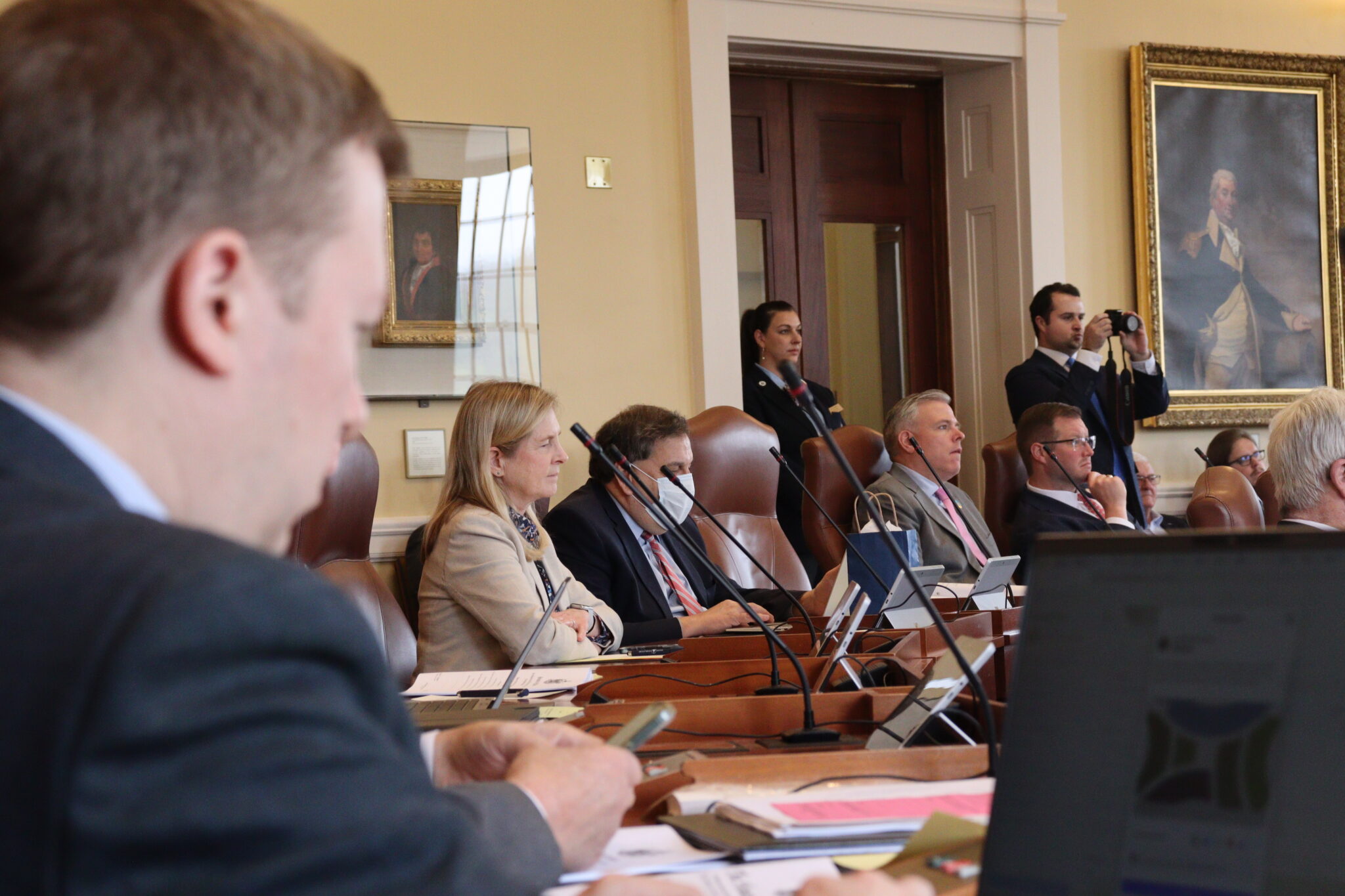
- Details
- By Emma Davis, Maine Morning Star
- Sovereignty
The Maine Legislature on Tuesday rejected two bills related to the state recognition of tribes, a longstanding effort that Wabanaki leaders argue would have undermined their continued push for the sovereignty afforded to other federally recognized tribes.
This story originally appeared in The Maine Morningstar and is republished under Creative Commons license CC BY-NC-ND 4.0.
The Wabanaki Nations — the Houlton Band of Maliseet Indians, Mi’kmaq Nation, Passamaquoddy Tribe and Penobscot Nation — have federal recognition, which, in theory, gives them the right to self-govern and makes them entitled to certain benefits and federal protections under federal Indian law.
However, the 1980 Maine Indian Claims Settlement Act has left the Wabanaki Nations with footing more akin to municipalities than independent nations. Overhauling that act is the fight for sovereignty Wabanaki leaders and a growing number of bipartisan lawmakers have been pushing for years, though so far have only seen success with piecemeal change.
The Wabanaki Nations do not have state recognition, though that’s not as abnormal. Some states have adopted state recognition processes, affording non-federally recognized tribes a path to official acknowledgement but in a way that doesn’t afford the same sovereignty or access to resources available through federal recognition.
Wabanaki leaders say proposed state recognition process could hinder sovereignty fight
That’s the type of process Rep. Jennifer Poirier (R-Skowhegan) tried to establish in Maine, though lawmakers rejected it, arguing the state recognition process would subvert the federal process, which is also comparatively a more rigorous one.
“This feels like a step backwards,” Wabanaki Alliance Executive Director Maulian Bryant told Maine Morning Star about the state recognition attempt. “We feel strongly about the validity of the federal process, and going through that. We don’t want to complicate an already complicated situation that’s been going on for over 40 years now while we’re trying to make progress.”
Poirier’s bill, LD 813, would have established a commission appointed by the governor to review applications for state recognition. The House voted 82-57 against this measure on Tuesday and the Senate rejected it without a roll call vote or discussion on Wednesday.
On the floor on Tuesday, Rep. Adam Lee (D-Auburn) pointed to what’s happened with Vermont’s state recognition process as a reason for Maine to not establish its own.
After a Canadian tribe asserted groups afforded state recognition by Vermont are not Indigenous and are instead appropriating their identity and culture, Vermont is now considering a task force to reconsider past tribal recognition decisions by the state.
Poirier has said she’d hoped LD 813 would be unnecessary because of another bill she proposed, LD 812, which sought to provide state recognition for a group called the Kineo St. John Tribe. That measure would afford such recognition without the processes detailed by the former bill.
The House rejected the bill without a roll call vote on Tuesday and the Senate followed suit on Wednesday.
This group, formerly under the name the Kineo Band of Malecite, another spelling for Maliseet, has pushed for this recognition for more than a decade but legislative attempts have so far failed.
Maine Morning Star is part of States Newsroom, a nonprofit news network supported by grants and a coalition of donors as a 501c(3) public charity. Maine Morning Star maintains editorial independence. Contact Editor Lauren McCauley for questions: [email protected].